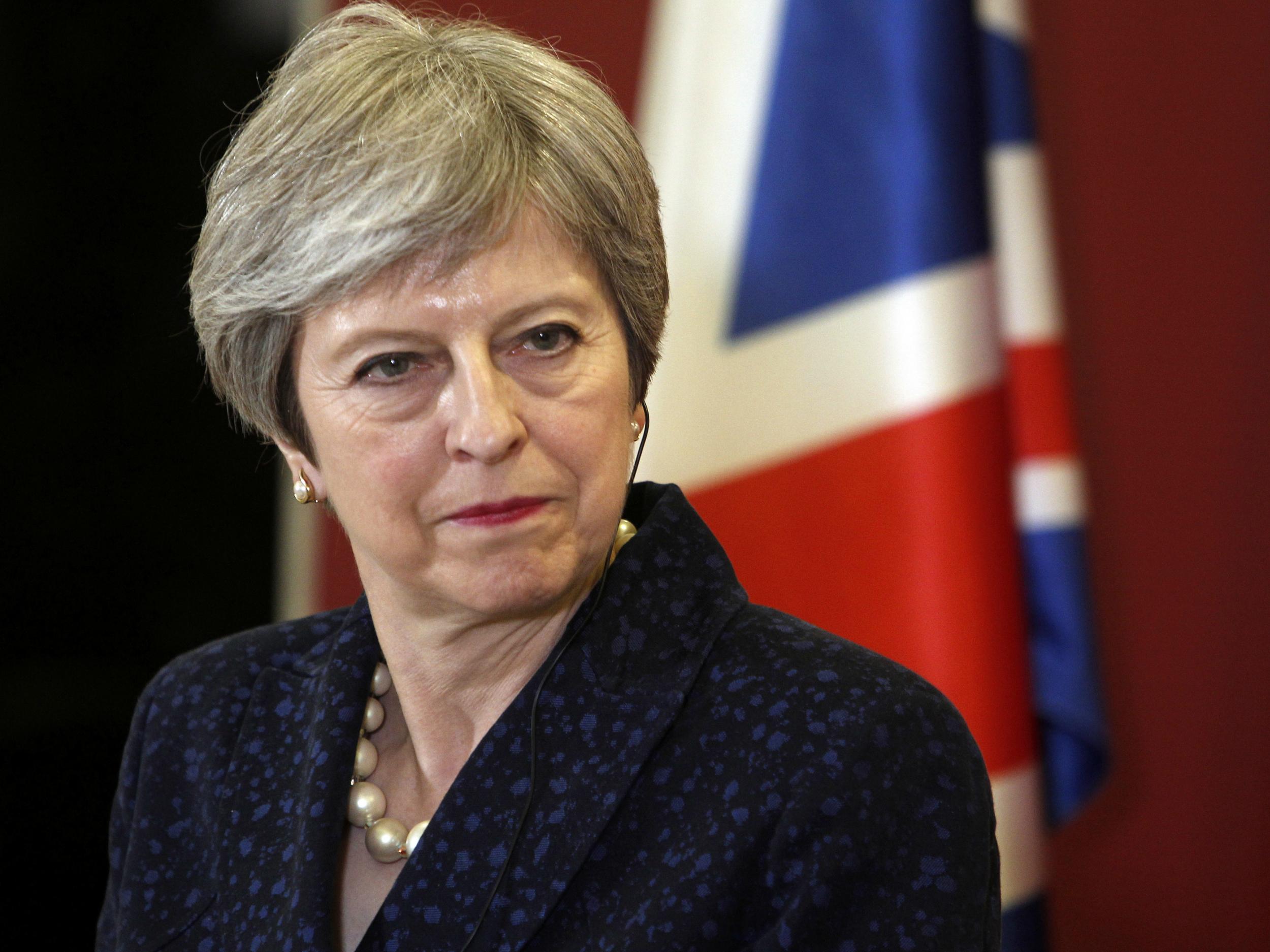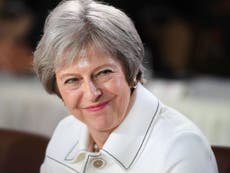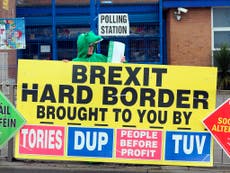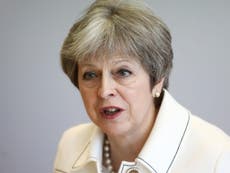Theresa May begs her divided party not to weaken her negotiating hand in Brussels
The prime minister echoed the plea of John Major 21 years ago to a Tory party at war with itself not to undermine the government’s bargaining position in Europe


The prime minister looked cheerful enough as she arrived at the meeting of Tory MPs at 6pm, expressing mock surprise at the number of journalists packing the corridor outside the room.
From outside, we could hear her greeted by applause and the banging of desks as she went in. We heard a roar of laughter as she, or Graham Brady, the chair of the backbench Tory MPs’ 1922 Committee, said something at the start. Twelve minutes later there was sustained but not exactly enthusiastic applause.
We know what she told them because the Downing Street press office issued the text of the key paragraph: “We must think about the message Parliament will send to the European Union this week. I am trying to negotiate the best deal for Britain. I am confident I can get a deal that allows us to strike our own trade deals while having a border with the EU which is as frictionless as possible. But if the Lords amendments are allowed to stand, that negotiating position will be undermined.”
And just in case we didn’t get the message, Steve Baker, the Brexit minister and Robert Buckland, the loyalist ex-Remainer solicitor general, came out to tell journalists what she had just said. Baker said: “Do we want a strong prime minister or a weak one to negotiate for us in Europe?”
“We will hang together or we will hang separately,” said Buckland. Neither of them, possibly, gave quite the impression of determination and defiance that they intended.
Theresa May’s message reminded me of another Conservative prime minister addressing his divided party on the subject of Europe. During the 1997 election campaign, as Tory MPs broke with party policy to declare they would never agree to join a single European currency, John Major scrapped a planned election broadcast and spoke directly to camera himself: “Whether you agree with me or disagree with me; like me or loathe me, don’t bind my hands when I am negotiating on behalf of the British nation.”
A fat lot of good it did him. More and more Tory MPs declared against the single currency and a few days later they, and Major, were swept away by the Blair deluge.
Of course, Theresa May is at a different stage of the electoral cycle. And she is likely to get through the high drama of the votes in the Commons over the next two days.
The government whips have done their job. Some of the Tory rebels have not been persuaded. Sarah Wollaston, for example, refuses to accept that voting for a soft Brexit makes a Jeremy Corbyn government more likely. But others accept the argument that now is not the time to jog the prime minister’s elbow as she negotiates in Brussels – especially as defeating the government in the votes this week would probably not have any practical effect.
Steve Baker said, when he came out of the meeting, a customs union is a question “for a later date”. In other words, the message to his fellow Tory MPs is: if you still feel strongly about it, vote for a customs union when the trade bill comes to the House of Commons later in the year. By then, of course, the government hopes to have made some progress in the Brexit negotiations.
The chances are, then, that the government will get its way over the next two days. It will either reverse the Lords amendments or replace them with watered-down versions. As the prime minister was addressing Tory MPs, some of them were discussing a possible amendment on the customs union drafted by Oliver Letwin, David Cameron’s former fixer, and supported by Nicky Morgan, one of the possible rebels.
At one point, it was thought that the trickiest one was the vote on the “meaningful vote” amendment, which is expected between 3.30 and 4pm tomorrow. But the government has tabled an alternative to the Lords amendment, and it looks as if enough of the rebels will be satisfied with it.
That means the crisis has probably been averted this week. But there are many Tory MPs who are unhappy with the prime minister’s strategy and who are prepared to vote for a softer Brexit. They’ve been persuaded not to strike yet, and it may be that the government can keep fending them off until it is too late. Or, it may be that the government has simply put off its day of reckoning with the majority in the House of Commons that wants a Brexit that keeps the UK close to the EU.
If John Major’s “don’t bind my hands” plea is any guide, Theresa May is heading for trouble.






Join our commenting forum
Join thought-provoking conversations, follow other Independent readers and see their replies